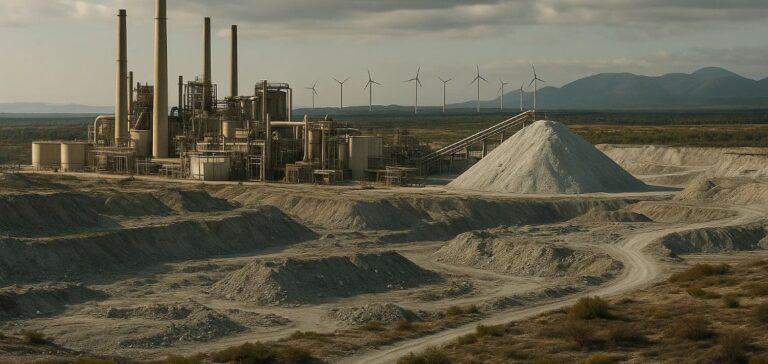Québec-based company Exterra Solutions Carbone has announced the closing of a CA$20mn ($14.6mn) Series A financing round, co-led by Clean Energy Ventures and BDC Capital, with participation from Investissement Québec, the provincial government, MOL Switch and Kinetics. This round brings Exterra’s total secured funding to CA$32mn ($23.3mn), according to a press release issued on May 6.
A large-scale industrial project in Québec
Exterra’s strategic focus lies in the construction of Hub I, an industrial facility slated for 2027 that will process over 300,000 tonnes of asbestos mining residues (RMA) annually. Located in the province of Québec, the plant is designed to become the largest of its kind globally. The facility aims to eliminate all remaining asbestos fibres, facilitating the remediation of contaminated sites.
Exterra has already de-risked its technologies through pilot operations in Val-des-Sources and plans to become the first company to commercialise low-carbon mineral production from mining residues. The firm also aims to scale its technology globally for applications such as acid recycling and direct emissions mineralisation.
Modular technology and multi-resource recovery
Exterra’s technology platform is based on two patented processes: LOW™ (Low-carbon Oxide from Waste) and ROC™ (Reactive Oxide to Carbonate). The first produces low-carbon metallic oxides, including magnesium oxide, while the second uses these oxides to permanently mineralise carbon dioxide in a single step without requiring capture.
Leveraging Québec’s low-emission hydropower, the process also generates in-demand by-products such as nickel concentrate for electric vehicle batteries and amorphous silica for construction materials. According to Exterra, the province has a regional supply potential of up to 800mn tonnes of RMA, positioning it as a strategic base for short critical mineral supply chains.
Initial contracts and strategic partnerships
The company has signed a pre-purchase agreement with Frontier Climate for carbon sequestration applications, highlighting the economic viability of its low-carbon magnesium oxide product. It is also collaborating with several industrial players, including BASF, Énergir, WSP and Winsome Resources, to accelerate the deployment of its technologies.
Clean Energy Ventures and BDC Capital will now join the company’s board of directors. Bicha Ngo, Chief Executive Officer of Investissement Québec, stated that the CA$2mn investment reaffirms the agency’s commitment to supporting local companies developing high-potential technological solutions.






















